Finding Clarity: How Inference-Based Cognitive Behavioral Therapy (IB-CBT) Offers Relief from OCD
Obsessive-Compulsive Disorder (OCD) is a complex mental health condition that affects millions of people worldwide. It's characterized by intrusive thoughts and repetitive behaviors that can significantly disrupt daily life. While traditional Cognitive Behavioral Therapy (CBT) has been effective for many, a newer approach known as Inference-Based Cognitive Behavioral Therapy (IB-CBT) offers a promising alternative for those struggling with OCD. In this blog, we'll delve into the principles of IB-CBT and explore how it can provide clarity and relief to individuals battling OCD.
Understanding OCD and Its Challenges
OCD is a debilitating condition marked by persistent obsessions and compulsions. Obsessions are intrusive, unwanted thoughts, images, or urges that cause significant distress, while compulsions are repetitive behaviors or mental acts performed to reduce anxiety or prevent a feared outcome. Despite efforts to resist or ignore these obsessions, individuals with OCD often find themselves trapped in a cycle of rituals and intrusive thoughts that can consume hours of their day.
The Limitations of Traditional CBT
Traditional CBT for OCD typically involves exposure and response prevention (ERP), which exposes individuals to feared situations or triggers while preventing them from engaging in compulsive behaviors. While ERP can be effective, it may not address the underlying cognitive processes that contribute to OCD symptoms and can be seen as too intense for some people. This is where IB-CBT offers a unique approach.
The Principles of Inference-Based Cognitive Behavioral Therapy (IB-CBT)
IB-CBT is grounded in the idea that OCD symptoms are driven by faulty reasoning and inference-making processes. It focuses on challenging and correcting these cognitive distortions to alleviate symptoms and improve overall functioning. Here are some key principles of IB-CBT:
1. **Identifying and Challenging Inferences:** IB-CBT helps individuals identify the underlying assumptions and inferences driving their obsessions and compulsions. By examining the evidence for and against these beliefs, individuals can develop a more balanced and accurate perspective.
2. **Addressing Intolerance of Uncertainty:** Many individuals with OCD have a low tolerance for uncertainty and engage in compulsive behaviors to reduce uncertainty and anxiety. IB-CBT aims to increase tolerance for uncertainty by teaching individuals to challenge the need for certainty and embrace ambiguity.
3. **Examining Cognitive Biases:** IB-CBT helps individuals recognize and challenge cognitive biases that contribute to OCD symptoms, such as catastrophic thinking, overestimation of threat, and selective attention to threat-related stimuli.
4. **Promoting Cognitive Flexibility:** IB-CBT emphasizes the importance of cognitive flexibility – the ability to adaptively respond to changing situations and perspectives. By learning to approach situations with an open mind and consider alternative interpretations, individuals can reduce rigidity in their thinking patterns.
Applying IB-CBT to OCD Treatment
IB-CBT offers a structured and evidence-based approach to treating OCD. Here's how it can be applied in clinical practice:
1. **Psychoeducation:** Therapists provide education about OCD and the role of inference-making processes in driving symptoms. Clients learn about common cognitive distortions and how they contribute to obsessions and compulsions.
2. **Identifying Inferences:** Clients work with their therapists to identify the underlying inferences driving their OCD symptoms. This may involve keeping a thought diary to track obsessions and identifying the underlying beliefs and assumptions associated with them.
3. **Challenging Inferences:** Clients learn to challenge and evaluate the evidence for their inferences. Therapists guide clients through exercises to examine the accuracy and validity of their beliefs and consider alternative explanations.
4. **Exposure and Response Prevention (ERP):** In addition to cognitive interventions, IB-CBT may incorporate exposure exercises to help clients confront feared situations or triggers. By gradually exposing themselves to feared stimuli while resisting the urge to engage in compulsions, clients can learn that their feared outcomes are unlikely to occur.
5. **Relapse Prevention:** IB-CBT emphasizes the importance of relapse prevention strategies to help clients maintain their gains over time. Clients learn coping skills to manage setbacks and prevent the recurrence of symptoms.
Conclusion
Inference-Based Cognitive Behavioral Therapy (IB-CBT) offers a promising approach to treating OCD by addressing the underlying cognitive processes that contribute to symptoms. By challenging faulty reasoning and inference-making processes, IB-CBT helps individuals develop a more balanced and accurate perspective, reducing the intensity and frequency of obsessions and compulsions. As we continue to refine our understanding of OCD and its treatment, IB-CBT stands out as a valuable tool in the quest to provide relief and clarity to those struggling with this debilitating condition.
If you are looking for providers who specialize in utilizing this approach with OCD, get matched with one of our OCD counseling specialists today. If you would prefer, you can also schedule a free treatment consultation directly with one of them here (make sure to select one of our OCD specialists from the list).
